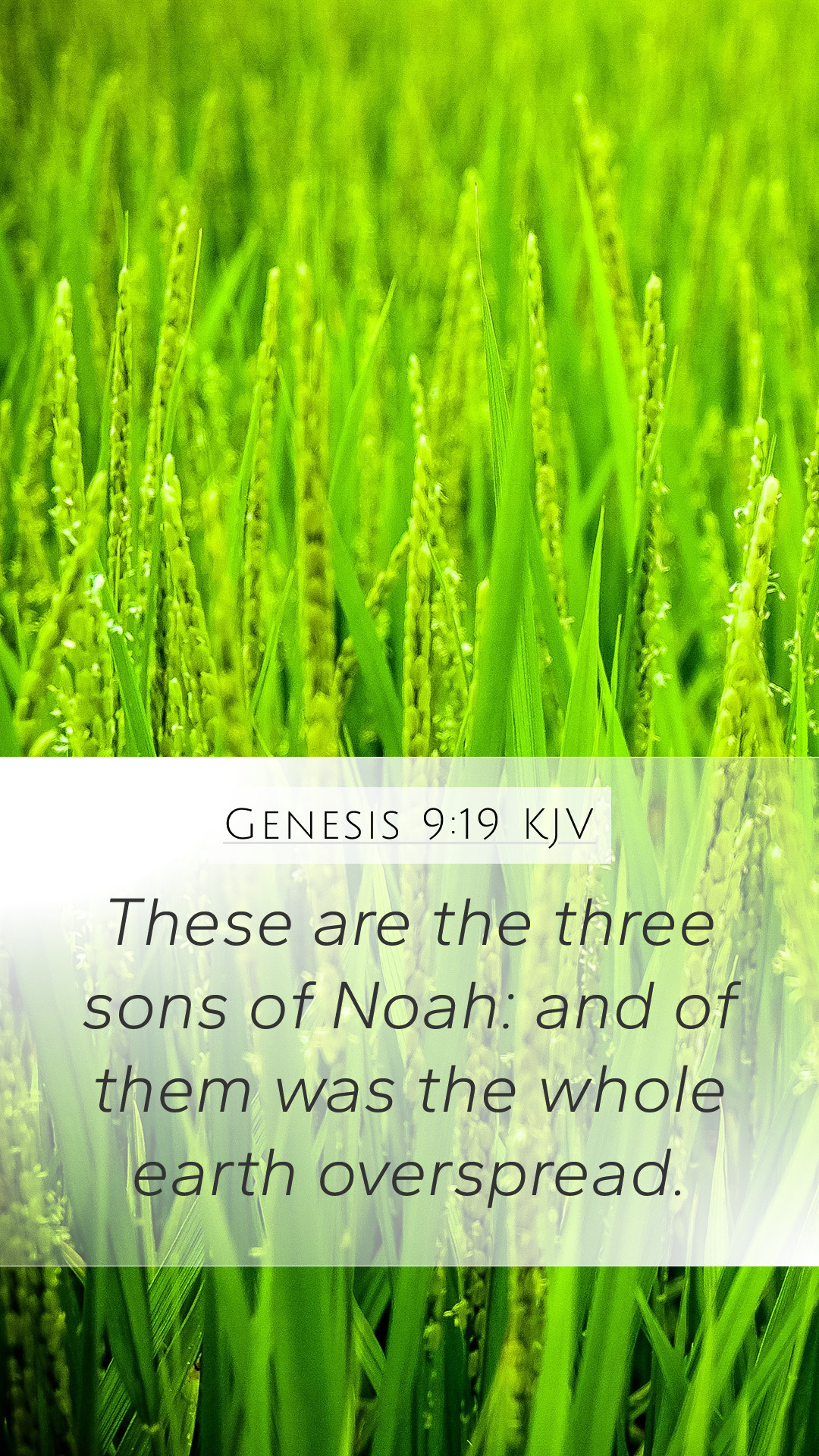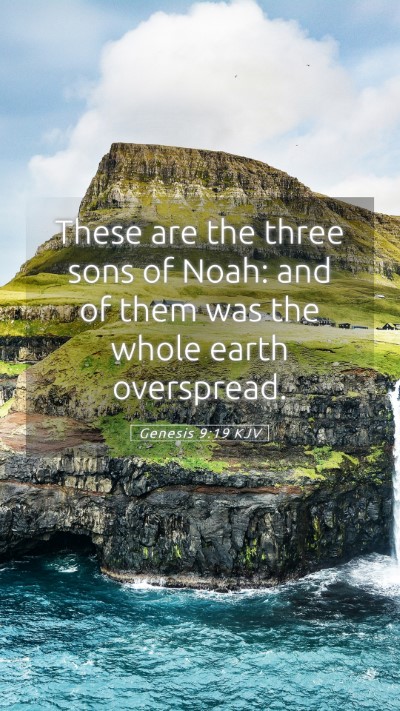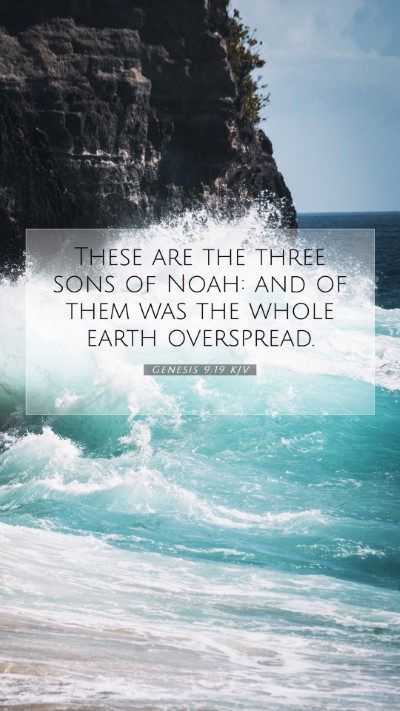Meaning and Interpretation of Genesis 9:19
Genesis 9:19 states, "These three were the sons of Noah: and of them was the whole earth overspread." This verse serves as a key point in the narrative following the great flood, where Noah's family is seen as the progenitors of all humanity. Throughout history, this text has been examined and understood through various lenses, yielding rich insights into its implications.
Contextual Overview
This verse is central to the genealogy that follows the flood narrative. It explicitly identifies Noah’s sons—Shem, Ham, and Japheth—as the forebears of all nations. Understanding the significance of this passage involves exploring both its immediate context and its broader theological implications.
Insights from Commentaries
Matthew Henry's Commentary
Matthew Henry emphasizes the unity of the human race that emerges from Noah's descendants. He notes that this genealogical data serves to remind readers of God's covenant with humanity post-flood and underscores the intended spread of humanity across the earth. Through Noah's sons, the diversity of nations and cultures would emerge, highlighting God's plan for creation.
Albert Barnes' Notes
Albert Barnes points out that the mention of these three sons serves not only to establish Noah's lineage but also functions as a backdrop for understanding future events involving their descendants. Barnes suggests that while the three sons represent different nations, this verse establishes a divine order in the human family, linking it back to God's covenant and sovereign will.
Adam Clarke's Commentary
Adam Clarke delves into the implications of their names and their resultant nations. He argues that from these three sons came the various peoples that populate the earth. Clarke raises the point that each son represents different characteristics and legacies tied to the regions they settled, offering a glimpse into the historical spread of humanity after the deluge.
Theological Implications
This verse has several important theological implications:
- Unity of Humanity: Genesis 9:19 emphasizes that all human beings share a common ancestry, which has implications for understanding human dignity and equality.
- Divine Sovereignty: The distribution of nations reflects God’s sovereign will in guiding human history.
- Covenantal Theology: This verse connects to the broader theme of God's covenant with Noah, demonstrating God’s desire to restore and renew creation through humanity.
Related Bible Cross References
- Genesis 10: The Table of Nations outlines the descendants of Noah's sons and the regions they inhabited.
- Acts 17:26: Paul proclaims that God made all nations from one man, echoing the message of unity found in Genesis 9:19.
- Romans 5:12: Discusses the entrance of sin into the world through one man, linking back to Noah as a new beginning post-flood.
Applications and Practical Insights
The significance of Genesis 9:19 extends into daily life and the practice of Bible study. Here are some applications:
- Understanding Scripture: This verse can encourage readers to explore their own heritage in light of biblical truth, affirming the unity and equality of all people.
- Bible Study Tools: Utilize this text in discussions about the origins of humanity and the unity in diversity among nations in your Bible study groups.
- Online Bible Study: Engage with online communities to discuss how the implications of this verse can inform our views on culture, diversity, and inclusion today.
- Applying Bible Verses: One can reflect on their own responsibilities as a steward of the earth, recognizing the interconnectedness of all nations.
Conclusion
Genesis 9:19 provides rich material for understanding our shared human experience. Through commentary and reflection, it invites deeper inquiry into humanity's beginnings, encouraging an appreciation for both our common roots and the diversity that arises from them.


